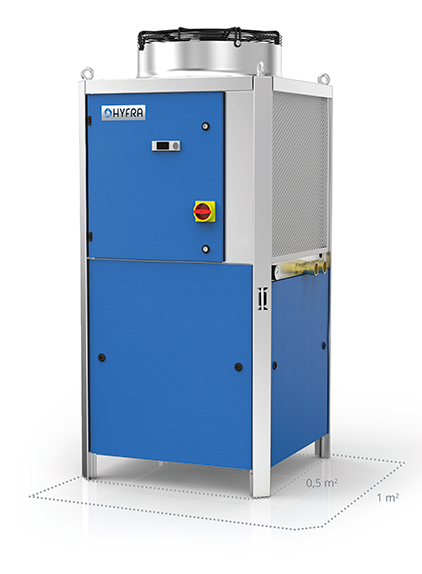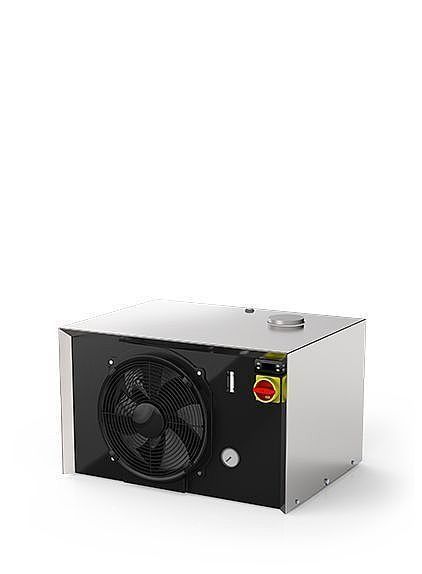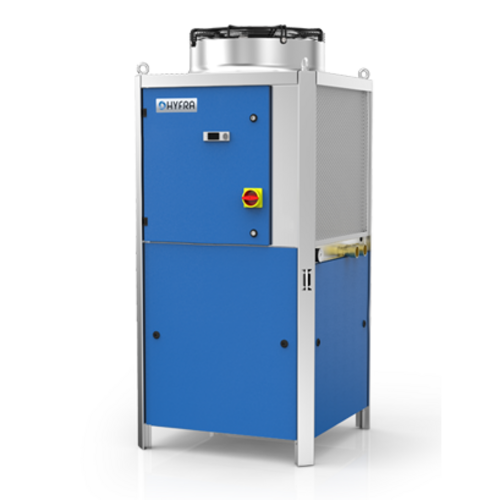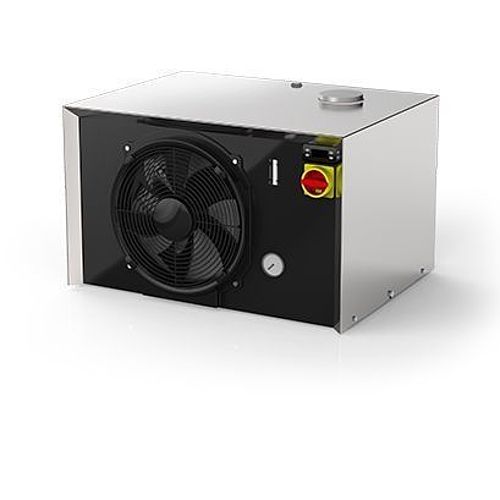Today, more and more workpieces are being manufactured using additive manufacturing processes. Here, the material of the workpiece hardly poses any problems, since an extremely large number of materials and also alloys can already be manufactured additively in various processes. The numerous advantages, such as waste reduction, maximum freedom in design, less material required or also high quality, are increasingly strengthening the acceptance for additive manufacturing.
How are industrial cooling units used for machine cooling?
Additive manufacturing processes are usually accompanied by the highest processing temperatures.
For example, high temperatures in the workpiece must be specifically dissipated via the work table to avoid unwanted stresses in the workpiece, or the laser source used to generate the heat required for laser melting must be kept at a constant, precise temperature level. For this reason, liquid cooling is used here, as it can be precisely controlled to within ±0.1 K.
Precise thermal management is essential in many respects in order not to negatively affect the precision of the workpieces.
You might be interested in our overview of process chillers.
What are the requirements in modern machine cooling?
In addition to the demand for ever higher precision, additive manufacturing machines also require ever greater performance in a smaller space. As a result, active liquid cooling is being used more and more frequently. This is the only way to achieve precise temperatures at specific points within the complex interior of the machine. The requirements here vary greatly depending on the specific application: for example, laser cooling requires the highest precision with the smallest hysteresis, whereas continuous removal of heat from the workpiece makes it imperative that the temperature is not lowered too abruptly.
In summary: Great precision requires exact temperature control of the workpiece, tool and machine tool. More power creates shorter machining times due to greater possible layer thicknesses, but thus also higher heat loads and requires the more effective liquid cooling instead of simple air cooling for the same or less space requirements. For liquid cooling by means of water, oil or deionized water (DI water) HYFRA has the suitable chiller or develops customized solutions.
What advantages do chillers offer in additive manufacturing?
Due to their compact design, HYFRA chillers can be perfectly integrated inside the additive manufacturing system. If multi-circuit systems are used, various applications within the system can be managed with one chiller. Even the temperature management of electrical components can be realized by passive liquid cooling.
Check out other favorite products like the reliable HYFRA laser coolers & chillers.
Like machine tools themselves, process coolers must also become steadily smaller, more powerful and more flexible in order to fit into machine designs. At the same time, the requirements for the careful use of all economic and ecological resources are growing. To this end, specialists from HYFRA are developing future-proof solutions, such as microchannel technology, which reduces refrigerant requirements by up to 70%, as well as compact designs with a reduced footprint or height.
Various HYFRA coolers can be used for machine cooling, especially in the field of additive manufacturing. The immersion coolers of the HYFRA Gamma series as well as the continuous coolers of the HYFRA Alpha series are suitable for process cooling by means of emulsion and oil. The recirculating coolers of the HYFRA Sigma series as well as the HYFRA eChilly, on the other hand, enable a closed cooling circuit, for example in spindle cooling.




